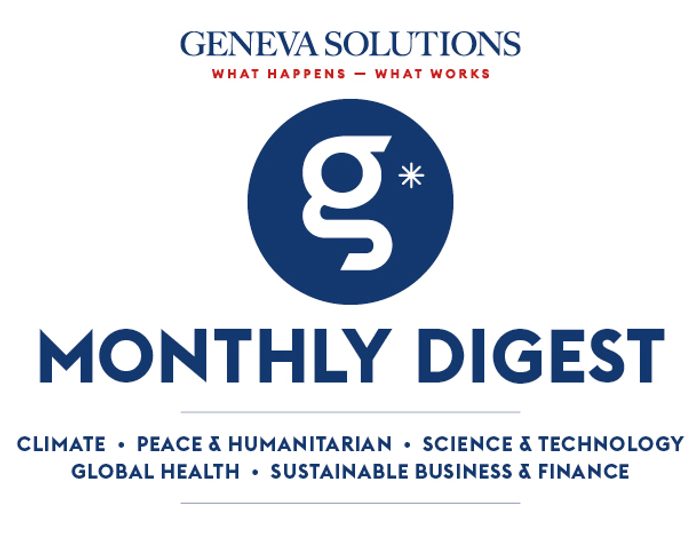 |
Hello, this is Gabriela, with a round-up of May’s top stories. The month kicked off with brewing concern over the escalation of conflict in Sudan. As efforts to halt the fighting were frustrated by a string of broken ceasefires, warnings grew louder that the fighting could plunge the region into a downward spiral. As the death toll and exodus numbers rose, the Human Rights Council held an emergency meeting on the conflict.
Russian brinkmanship also took centre stage this month, as Moscow repeatedly threatened to let the Black Sea grain deal flatline only to agree at the last minute to extend it. As a new July deadline nears, we talked to traders to figure out where exactly Ukraine’s grain exports were going and spoke to humanitarians to understand to what extent it is helping feed the world’s hungriest.
These and numerous other global crises were top of mind for UN human rights chief Volker Türk as he took stock of the slew of crises his office was trying to respond to with insufficient resources.
Two major health and climate meets also kicked off in Geneva this month, with crucial items on their agendas. At the World Health Organisation, countries gathered amid growing tensions between rich and poorer countries over how to tackle the next pandemic, and officials in Geneva got flak over failing to include Indigenous peoples in these discussions.
At the World Meteorological Organisation’s congress, officials threw all their weight behind efforts to make sure that more countries are equipped with management systems to save as many lives as possible when a natural disaster hits. As the WMO prepares for a leadership change, the stakes are high for the future chief to ensure continued progress in this initiative.
The UN’s migration agency also went through a leadership shake-up that saw Washington make a comeback. Ahead of the election, we explored what that could mean for the organisation.
Finally, we dove into the growing raft of questions and concerns that the advancement of AI technologies could bring for human rights. |

|

Work by Luísa Tormenta, a masters student at ÉCAL, the Cantonal Art School in Lausanne, entitled ‘Can I hear from you?’, exhibited at the Centre de la Photographie Genève, 23 May 2023. (Geneva Solutions/Paula Dupraz-Dobias)
|
|
🌽Where are Ukraine’s grains going?
As the UN-brokered grain deal between Russia and Ukraine hung in the balance, we followed the numbers to find out where Kyiv’s exports were ending up – and talked to humanitarians about the deal’s impact on their life-saving work.
Paula Dupraz-Dobias
|
|
Here's what else happened this month
|

Santiago Cantón, secretary general of the International Commission of Jurists. (Geneva Solutions/Michelle Langrand)
|
|
'We need to mobilise the human rights community again'
Two months after taking the helm at the International Commission of Jurists, Santiago Cantón spoke to Geneva Solutions about the challenges human rights face as democracies across the world falter and called on human rights groups to rally behind a new purpose.
“Human rights are in decline and have been since the beginning of the century,” the 60-year-old jurist said. For Cantón, part of it is due to a lack of leadership and the pull that some populist leaders have had to capture the imaginaries of disillusioned populations, from the US and Brazil to Mexico and El Salvador.
“We don't have the same leaders in the world, and the governments that support human rights today, do not have the leadership they need to have for political reasons. [Yet] you do have leadership on the wrong side. And they're winning.”
Michelle Langrand
|
|
|
GS news is a new media project covering the world of international cooperation and development. Don’t hesitate to forward our newsletter!
Have a good day!
|

|
|
Avenue du Bouchet 2
1209 Genève
Suisse
|
|
|
|









